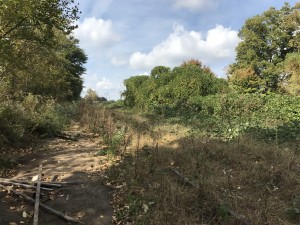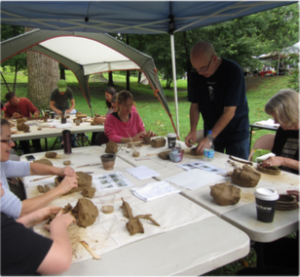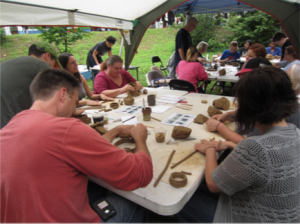Questions:
What are the major projects? In a bulleted list, provide links to the project descriptions for each of them.
How will your final grade be calculated?
A combination of class preparedness, class attendance, completion of the major projects, and accumulation of points is used to calculate the final grade.
What is the “submission form” and how do you use it? Embed the form below your answer (hint: Google “embed Google form” to find out how).
The submission form is used to submit all assignments, projects, and other completed work.
Embed the course calendar and weekly overview below this question.
Where on the course website can you find an overview of what’s due and the readings for each unit?
“Course Overview” or the calendar.
What is the best way to see an overview of what’s due each week?
Go to the weekly overview under calendar.
What is the attendance policy?
Students earn points for attending class, but lose points for missing class unexcused. Excused absences are limited to university-sponsored events where you are representing GSU in an official capacity, religious holidays, and legal obligations such as jury duty or military service days. Absences for all other reasons will result in a points deduction as outlined above. In the event of extended illness or family emergency, requests may be considered for individual exemption from the general attendance policy on a case by case basis.
What are the two ways you can lose points?
Missing class with an unexcused absence or failing to complete a class preparation assignment.
What are my office hours, and how do you make an appointment to see me outside of class?
Office Hours are Tuesdays and Thursdays between 9 and 11 AM. Students can make appointments either in person or via Skype/Google hangout by emailing rwharton3@gsu.edu.
How do you earn participation credit? Provide a link to the instructions/guidelines for participation.
Students must engage with their instructors and peers, both inside and outside the classroom, to receive points for participation.
Participation Info
How many points can you earn by participating in or organizing a study group session?
Up to 25
How can you be assured of earning an “A” in this course?
Complete all of the major projects, miss no more than four class meetings, and accrue 2,800 points
What are the minimum requirements for earning a passing grade of “C”?
Complete all of the major projects, come to class prepared, and miss only four class meetings
What do you do if you’re not sure how to document your participation in order to earn points?
If you ever have questions about what kind of evidence you need to provide to document your participation and how to submit it, stop by during office hours or ask the question before or after class. You’ll earn points for the office hours visit, asking the question, and for finding a way to make the information available to the rest of your classmates.
What are the Unit 1 readings and which one would you like to annotate for Reading Annotation 1?
Thomas Carter and Elizabeth Collins Cromley, “Introduction,” from Invitation to Vernacular Architecture
James Deetz, “Parting Ways,” from In Small Things Forgotten: An Archaeology of Early American Life
Stephanie Fitzgerald, “The Cultural Work of a Mohegan Painted Basket,” from Early Native Literacies in New England: A Documentary and Critical Anthology








Recent Comments